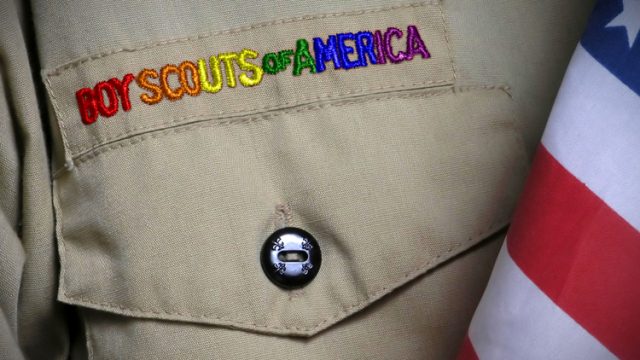When Social Change Doesn't Require Courts Or Laws: Boy Scouts Reconsidering Ban On Gay Leaders

“We must deal with the world as it is, not as we might wish it to be. The status quo in our movement’s membership standards cannot be sustained,” former Secretary of Defense and current President of Boy Scouts of America Robert Gates said, as reported by Reuters.
That’s a remarkable thing to hear. For decades the Boy Scouts have resisted inclusion of homosexuals. It wasn’t until 2013 that the Scouts began to accept gay members. Now it appears as though the group’s ban on gay scout leaders is nearing an end.
That’s positive change and I’m glad to hear of it. I’m not sure if my son will ever be a Boy Scout, but I can tell you that I’ll feel a lot more comfortable with the possibility once these policies are gone.
But more notable is the manner in which these policies have changed. The Boy Scouts has been largely successful in defeating challenges to their policies, arguing that they are a private group and set the terms for inclusion in their group as they wish. Though I disagree with their decision to exclude gays, I’ve always felt that they were right to stand on their freedom to make that decision for themselves.
[mks_pullquote align=”right” width=”300″ size=”24″ bg_color=”#000000″ txt_color=”#ffffff”]…my contention is that by the time politicians get around to passing legislation aimed at social change the change itself is usually already happening.[/mks_pullquote]
Now that they appear on the verge of changing their minds to the better on this issue I can’t help but feel like it offers a lesson for the larger debate over gay rights.
Maybe it’s better when change is a choice rather than a mandate.
When social change happens many are quick to credit public policy. This conclusion is usually the product of politics and lazy thinking. Politicians like to give themselves credit for things, and it’s easier to point to the passage of legislation as the cause of change as opposed to complex shifts in the makeup of public attitudes.
But consider this: How often do politicians, as a class of people, exemplify a willingness to do unpopular things even if you or I might consider them to be the right things?
As someone who makes a living from observing and writing about public policy I can tell you that this doesn’t happen very often and, when it does, it certainly doesn’t happen in the sort of majorities it takes to pass landmark legislation.
Thus, my contention is that by the time politicians get around to passing legislation aimed at social change the change itself is usually already happening. After all, our politicians are popularly elected and the policies they pursue – especially the high profile social policies – are typically a big part of what they campaigned on to get elected.
Which makes me wonder how often policies that supposedly drive social change are even needed when their passage is usually incumbent upon existing majority support.
I think it behooves the advocates of social change – including those fighting for greater acceptance of homosexuals – to focus less on laws mandating changes in the status quo and more on convincing their fellow citizens that the status quo needs changing.
Once the latter happens, the status quo will not stand.




